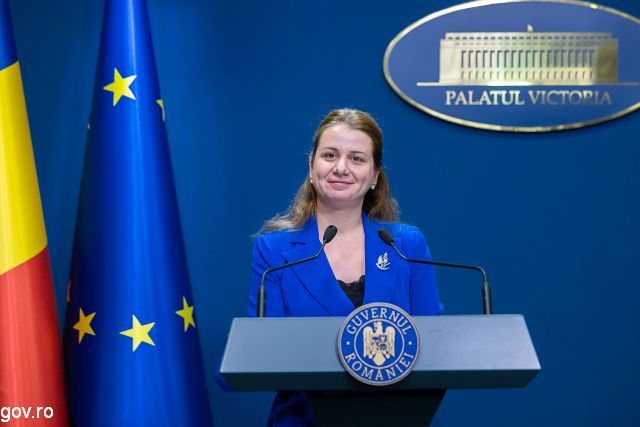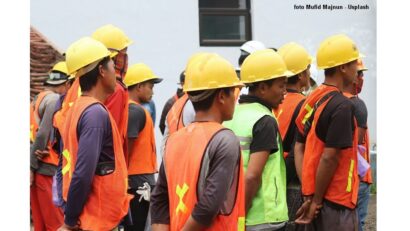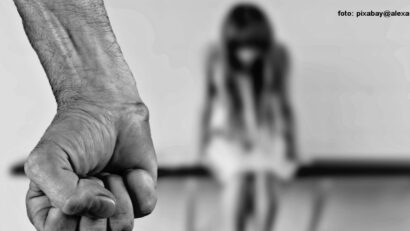The Education Laws
The new legislation reflects the Educated Romania programme initiated by president Iohannis

Roxana Vasile, 12.04.2023, 14:00
For 5 years now, the current education minister, Ligia Deca, was the
official coordinator of the Educated Romania project initiated by president Klaus
Iohannis and reviewed throughout his 2 terms in office. Implemented these days
in the form of the new Education Laws, the project is aimed at providing
solutions to the serious problems in Romania’s education system. Suffice it to say
that ever since the 1989 anti-communist Revolution, legislation in the sector
has been habitually amended by the successive education ministers from various
political parties, but nothing managed to address the issues that teachers,
students and parents warned would severely affect the educational process.
After an initial consultation stage in 2016-2017, the Educated Romania
project was posted for public review in 2018. As a presidential adviser on
education, Ligia Deca directly coordinated the project, took part in debates
and in drafting the final report, issued in the summer of 2021. More than 60
structures in education and close to 13,000 people worked to put it together.
Last autumn, president Klaus Iohannis appointed Ligia Deca as education
minister, arguing that Educated Romania is a badly needed national project,
which must translate as soon as possible into legislation. The undergraduate
education bill aims at reducing school dropout rates, among other things, while
the higher education bill is designed to support European cooperation for
Romanian universities. Teaching staff professionalism, improved access to early
education, curbing functional illiteracy, adjusting curricula to the labour
market, updating test and assessment methods, as well as increasing assistance
for underprivileged children, are also important goals being pursued.
But for most children and parents, the question is what happens with the
high school admission and graduation exams, the National Evaluation and the
Baccalaureate, respectively. The Baccalaureate will include an additional exam,
testing students’ basic skills, and another change is a Baccalaureate exam for
technological colleges.
Ligia Deca herself recently spoke about the high school admission exam
on Radio Romania:
Ligia Deca: Essentially, it is
the National Evaluation as we know it, with Romanian language and literature
and Maths exam, plus a mother tongue exam where applicable, followed by a
possible high school admission exam only for those profiles where there is competition,
and only for 60% of the seats available. The other 40% of the places will be
earmarked by a computer system taking into account the National Evaluation
results. Students and parents should know that these changes will not be
implemented as soon as the law takes effect, in one or two years’ time. We want
predictability, so the kids going into 5th grade in the first year
after the law takes effect will sit for the National Evaluation and high school
admission in the new format. Specifically, high school admission exams will be
implemented as of 2027 at the soonest, and the Baccalaureate either in 2028, or
in 2029, depending on how soon we finalise the curriculum reform.
The new education bills are designed to shift the focus of the education
system on students and to nurture the potential of each kid. How will this be
achieved? Minister Ligia Deca explains:
Ligia Deca: We are talking about
a paradigm shift. It’s not about the curriculum being chosen by a particular
school, but about the curriculum being chosen by each particular student from
what the school has to offer. We want this optional component to be enhanced
and better adjusted to children’s potential. At the same time, each student
will have a portfolio which will reflect their educational progress, allowing
us to step in much sooner than we do now, in case of problems. For each
education level there are provisions in the law that improve the connections
between school counsellors, form masters, parents, the other teaching staff, so
as to have a customised plan for each student. Also, the national programme on
reducing functional illiteracy will include standardised annual tests, which
will enable us to see where we should focus, where we can move up to more
complex subjects for high-performance kids and so on. So these laws will be
better focused on students’ needs.
As for the teaching staff, what will change in terms of their salaries
and professional assessment? Minister Ligia Deca:
Ligia Deca: The Education Ministry
and the main trade union federations have been working, these past months, on
what the salary system should look like in the new salary law. We have
submitted these documents to the labour ministry as early as in February, to
help them draft the section on the public education system in the salary law. There
have been talks with the trade unions and between the unions and the parties in
the ruling coalition. As for assessing the work of teaching staff, we have agreed
to explore together ways to adjust the instruments we already have, such as the
performance bonus, as well as ways to implement new instruments, such as
allowing 2% of the salary funds at the discretion of headmasters, to be given
as incentives for the teachers who get more involved in school projects.
For the time being, figures indicate that school dropout is one of the
major problems in Romanian schools, with Eurostat saying Romania sees the
highest dropout rates in Europe. And the rates are even higher in rural
communities. Another problem is functional illiteracy, measured in the 15-year-olds’
results at PISA tests, where Romania is significantly below the European
average. The shortage of teaching staff is another problem that has been
lingering unsolved for years. And not least, violence in schools and the use of
controlled substances in schools are increasingly common problems of late. (AMP)






























